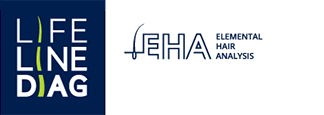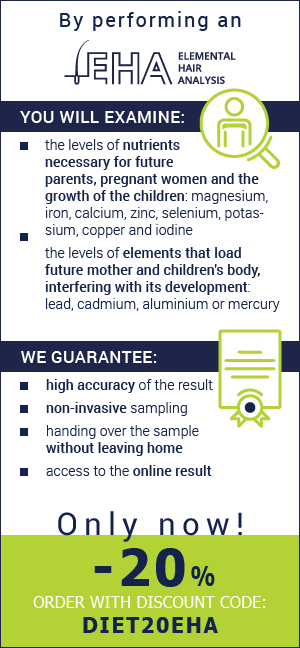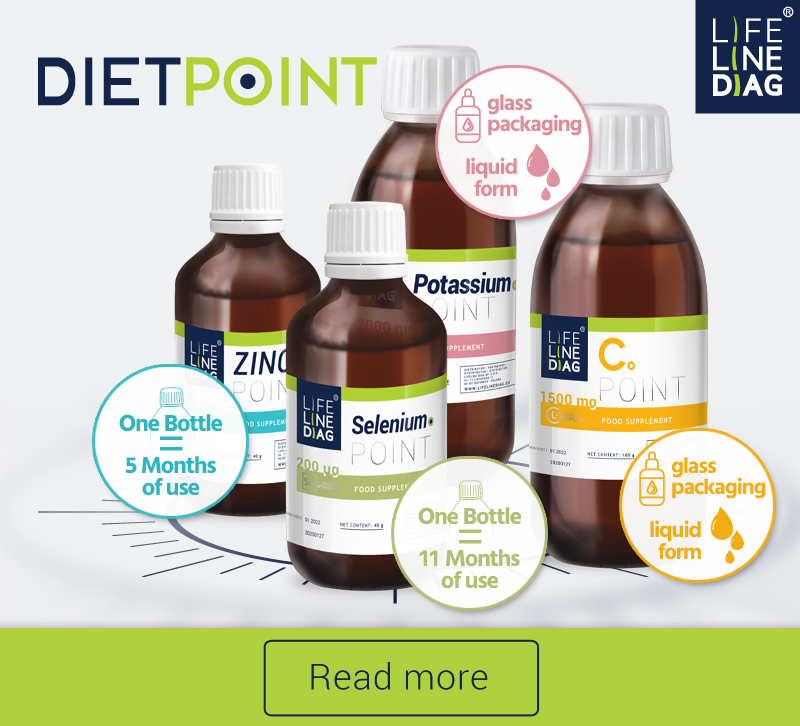
Numerous studies have shown that the development of a child is influenced not just by their own diet, but also by what their parents ate, even before birth. This is why the entire family’s diet should be rich in nutrients already at the planning stage. But how can you know that what you put on the menu will ensure the optimal development of your child? First of all, you need to be aware of which elements play a key role both in conception and at later stages of a child’s development, as well as how to determine their levels in the body.
The diet of future parents, pregnant women, breastfeeding mothers and children themselves should centre around a variety of good-quality products. A deficiency in some nutrients can negatively affect fertility, pregnancy and the development of a young child. This is why in the case of minerals, you need to pay special attention to:
IRON
Iron deficiency in women can inhibit foetal growth. It’s also necessary for the proper functioning of the ovum and embryo. In both adults and children, a lack of iron also leads to anaemia and decreased immunity.
MAGNSIUM
A magnesium deficiency (similar to copper and zinc deficiencies) before pregnancy can lead to infertility and miscarriage. Magnesium relieves the symptoms of stress, which is very helpful in getting pregnant. In children, it’s an important building block that forms bones and teeth, and determines the proper absorption of calcium. It’s responsible for the proper functioning of the heart, muscles and nervous system. However, in Poland, magnesium deficiency affects up to 20% of preschool-aged children and over 50% of school-aged children. Its proper proportion to calcium is also very important – it improves memory and concentration in children.
ZINC
For a foetus, zinc is important already in the mother’s belly, where it is responsible for proper foetal development and growth, strengthens the immune system and improves nutrient uptake and absorption. It is also important for children due to its ability to improve concentration and memory. Zinc also affects the absorption of vitamin A and the elimination of cadmium and lead from the body. In women, zinc is involved in the regulation of the menstrual cycle and the proper functioning of reproductive organs. It also protects against the risk of premature labour. In men, zinc deficiency causes a decrease in testosterone levels, decrease in sperm count, as well as hypogonadism, impotence, reduced sperm viability and infertility.
SELENIUM
Selenium regulates the menstrual cycle, and a deficiency can cause miscarriage. It also has a significant impact on semen quality in men. It’s responsible for the proper structure and motility of sperm and is needed for the production of testosterone. It should be supplemented together with zinc, because there’s a metabolic link between them. Children born to mothers with a selenium and iodine deficiency are more at risk of congenital diseases that cause mental and physical underdevelopment.
CALCIUM
Calcium is one of the most important elements in the development of children – it’s responsible for bone mineralisation and healthy teeth. It affects the work of the nervous system, hormonal balance, blood clotting and muscle tone.
IODINE
Unfortunately, Poland lies in a region with a deficiency in iodine. Iodine is extremely important for the normal functioning of the thyroid and proper production of thyroid hormones. Therefore, it should be supplemented from an early age.
COOPER
Copper is necessary for the formation of blood vessels and the proper functioning of the immune system. It’s also important for DNA protection and the functioning of the nervous system.
POTASSIUM
A deficiency in electrolytes such as sodium, calcium, magnesium and potassium, which are responsible for the distribution of fluid around the body, is particularly dangerous in children. This is because children lose water much faster than adults do. Therefore, it’s important that a child’s diet is rich in electrolytes and that it provides the right amount of fluids, particularly water.
An elemental hair analysis (EHA) should be done to check to what extent the body is equipped with the necessary nutrients. This non-invasive diagnostic test shows the level of 29 nutrients and toxic elements in the body, making it an excellent tool for controlling deficiencies and dangerous heavy metal loads.
When ordering the HEALTHY KIDS PACKAGE, you’ll get to consult the results free of charge with a specialist, who’ll provide you with personalised dietary and supplementation recommendations for your child based on these results.
By getting an EHA + CONSULTATION PACKAGE as a future parent, you can look after your child’s development before they’re even born.
LifelineDiag
















